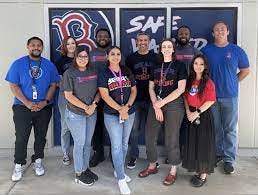What is a Transition Program?
A Bridge Between High School and College/Real World
What should our kids do after high school? If they are totally ready for college or work, then that’s awesome. Let them go! Let them soar!
Sometimes our kids need to cook for a year or two after high school before they’re ready for their next adventure. They might need more time to grow socially, emotionally, and academically. Often a developmental delay is just that — it’s a delay. Luckily, there are options.
Students, who need a little more time, might want to consider a transition program or an 18-21 Program, where they can continue their growth in a supportive setting.
Transition programs at your local schools or regional centers can give students an opportunity for internships in their own neighborhood, while developing their social and adult living skills. Typically, they focus on functional academic skills, like reading a menu or making change. They might provide interview training skills and resume writing. They are often inclusive of all students with disabilities, so students with varied abilities might be educated in one room.
Keeping our kids in local programs fosters a more inclusive society, which is always an awesome goal. Fire fighters and police officers get used to seeing autistic people crossing the street and shopping for groceries at the local supermarket. It normalizes disabilities.
By staying in these programs, it extends your child’s educational entitlement for three more years. It’s free support for our kids, who still retain an IEP and are protected by IDEA legislation. Once they leave public schools, there is no safety net.
In order to be eligible for a public school transition program, it is very important to not let your student officially graduate from high school. Your child can march in graduation, get a diploma, wear the hat and all that. But he can’t officially graduate.
If your student has larger challenges, then this is an obvious choice. A transition program is a bridge between high school and state disability programs, which start at age 21. The better programs will provide students with some real skills for employment and independent living.
Even if your student has Level 1 autism and was educated in mainstream academic classes, they might still need a transition program. Academically strong students may actually have received less help with their autistic issues during high school, but those issues are significant enough to pose real barriers to moving on to adulthood.
According to federal laws, public schools should educate students with IEPs until they are 21. In reality, it’s a legal grey area, and parents might have to advocate to keep their kids in a public school. To reduce conflict, you should clearly tell your school district that you want your son/daughter to NOT graduate and to stay in an 18-21 program. If you can notify your case manager about this decision midway through high school, then the district can allocate resources for your child and be better prepared.



